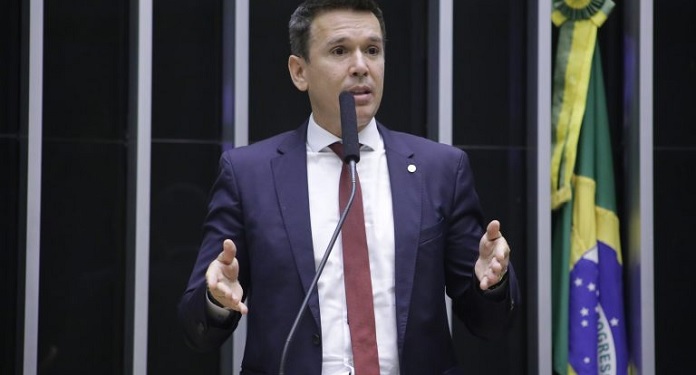The Plenary of the Chamber of Deputies rejected this Thursday, 24, seven highlights and finalized the vote on the bill for the legalization of betting, including casinos, bingos, animal games and sports betting (PL 442/91).
Now, the project goes to the Senate for evaluation. But government leader, deputy Ricardo Barros (PP-PR), declared that President Jair Bolsonaro will veto the bill if it is approved by the Senate.
The deputies agreed with the opinion of deputy Felipe Carreras (PSB-PE), who offers permanent or temporary licenses. Each state may have one casino, with the exception of Minas Gerais and Rio de Janeiro, which may have two, and São Paulo, three.
See how the betting legalization text turned out
Taxation
The taxation of games was among the most controversial issues in the House vote. One of the PT’s highlights, rejected by the deputies, wanted to increase the Cide rate from up to 17% to 30%, with the incidence on gross revenue instead of profit.
“The taxation model is very generous with games, with a small rate compared to the tax burden of other sectors,” said party leader Reginaldo Lopes (PT-MG).
The 1st vice-president of the Chamber, deputy Marcelo Ramos (PL-AM), declared that the tax burden on gambling will be lower than that on food in the basic basket. “A more harmful activity must pay more and a less harmful activity, less. Beer pays more tribute than water”, he compared.
Deputy Felipe Carreras observed that the taxation system should create opportunities for attracting investments. According to the rapporteur, the rate will still be lower than that of the entertainment segment (16.33%). “You can’t compare a kilo of rice with entertainment. We want to encourage the generation of jobs and income”, he declared.
Opposition MPs also complained about a point that exempts the exploitation of gambling and betting from any other contributions or taxes. “The exemption should be quickly revoked, as it is unconstitutional”, said Deputy Gilson Marques (Novo-SC).
Casinos
According to the text, casinos can be opened in resorts as part of an integrated leisure center, which will need to contain at least 100 high-end hotel rooms, meeting and event venues, restaurants, bars and shopping centers.
The physical area of the casino will need to be, at most, equal to 20% of the constructed area of the complex, and electronic and roulette, card and other authorized games can be explored.
In order to define the places where casinos can be opened, the Executive Power will need to take into account the existence of tourist heritage and the economic and social potential of the region. Each economic group may obtain only one concession per state, and accreditation will be carried out by public auction in the technical and price modality.
Additionally, the Executive Branch may grant the operation of casinos in leisure complexes to up to two establishments in states with dimensions greater than 1 million square kilometers (Amazonas and Pará).
Touristic cities
In locations classified as tourist centers or destinations, the opening of a casino will be authorized, regardless of the population of the state in which they are located.
The betting legalization project establishes these places as those that have a regional identity, appropriate infrastructure and offer tourist services, a large presence of tourists and title of natural heritage of humanity, in addition to having tourism as an important economic activity.
In addition, a tourist casino cannot be less than 100 kilometers from any casino integrated into a leisure complex.
Ships
New in relation to previous versions of the text is the operation of casinos on river vessels, one for each river with 1,500 km to 2,500 km in length; two for each river with a length between 2,500 km and 3,500 km; and three per river with a length greater than 3,500 km.
These vessels may not remain in a location for more than 30 consecutive days, and the concession may be assigned to up to ten establishments. These ships must have a minimum of 50 high-end rooms, restaurants and bars and shopping centers, as well as venues for events and meetings.
Bingo
Regarding bingos, the project allows their permanent exploitation only in bingo houses, allowing cities and the Federal District to explore these games in stadiums with a capacity of over 15 thousand fans.
However, bingo houses must have a minimum capital of R$ 10 million. The minimum area is 1,500 square meters, where up to 400 video bingo machines can be located. Slot machines will be prohibited.
According to the text, at most one bingo house will be accredited for every 150,000 inhabitants. Licensed places will have a 25-year authorization, renewable for an equal period.
Jogo do Bicho
For the legalization of the animal game, the project requires that all the licensee’s records, whether betting or extraction, be computerized and with the possibility of access in real time (online) by the Union, through the Audit and Control (SAC).
Interested parties need to prove a minimum share capital of R$ 10 million and reserve resources in guarantee for the payment of obligations and duties defined in the proposal, except for the premium, which may be in the form of cash collateral, guarantee insurance or bank guarantee.
Accreditation will be for a period of 25 years, renewable for an equal period if the requirements are met. There may be, at most, one operator of this game for every 700 thousand inhabitants of the state or DF.
In those with less than 700 thousand inhabitants, there should only be one accredited for the animal game. Redemption of prizes up to the Income Tax exemption limit will not require identification of the player.
Temporary operation
If, after one year of the validity of the future law, there is no regulation, the provisional operation of video bingo, bingo and animal games will be allowed throughout Brazil until the elaboration of the norms.




